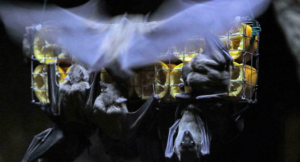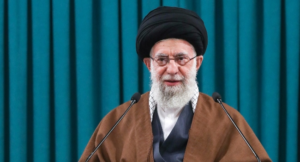
Turkish Cypriot leader Ersin Tatar on Saturday described as “essential” the construction of a road which has triggered rare tension with United Nations peacekeepers on the divided island.
Scuffles broke out on Friday between U.N. peacekeepers and Turkish Cypriot security personnel when peacekeepers tried to prevent roadworks starting in an area the U.N. says is part of a buffer zone under its jurisdiction.
Turkish Cypriot authorities say the peacekeeping force, known as UNFICYP, overstepped its boundaries.
“It is unfortunate that an attempt was made by UNFICYP to obstruct the development of the road being carried out by a civilian contractor, within the sovereign territory of the TRNC,” Tatar said in a statement to Reuters, referring to the Turkish Republic of Northern Cyprus, a breakaway state recognised only by Ankara.
Turkish Cypriot authorities want to build a road that would give residents of Pyla/Pile, a village in the U.N. administered buffer zone, direct access to territory under Turkish Cypriot control.
The U.N. says that just under half of the 11.5 km route falls within the territory it administers.
Friday’s incidents triggered a chorus of condemnation from the U.N., Britain, the European Union and the United States. In an advisory to its nationals, the United States embassy in Nicosia “strongly encouraged” its nationals to reconsider plans to travel to north Cyprus over the weekend.
Cyprus was split in a Turkish invasion in 1974 following a brief Greece-inspired coup. A U.N. buffer zone separating opposing Greek and Turkish Cypriots is about 180 km (112 miles)long east to west. At its widest, it is about 7.5 km wide, and at its closest less than 10 metres.
There was no construction underway on Saturday, and peacekeepers remained in the area, which was “firmly” within the buffer zone, a spokesperson for UNFICYP told Reuters.
Tatar, who is president of the TRNC, said the road was essential for purely humanitarian grounds to address economic and transportation issues for Turkish Cypriots living in that village.
Pyla/Pile itself is home to Greek and Turkish Cypriots and falls in territory surrounded by a patchwork of jurisdictions, from the U.N. buffer zone to British sovereign bases and to areas controlled by opposing communities.
At present, people from the area wanting to travel to north Cyprus have to cross a checkpoint in the British bases, then another checkpoint controlled by Turkish Cypriot authorities.
A Turkish Cypriot demand for a road to facilitate travel from Pyla/Pile to the nearby community of Arsos/Yigitler has been longstanding. The Turkish Cypriot project would more than halve the journey, Tatar said.






